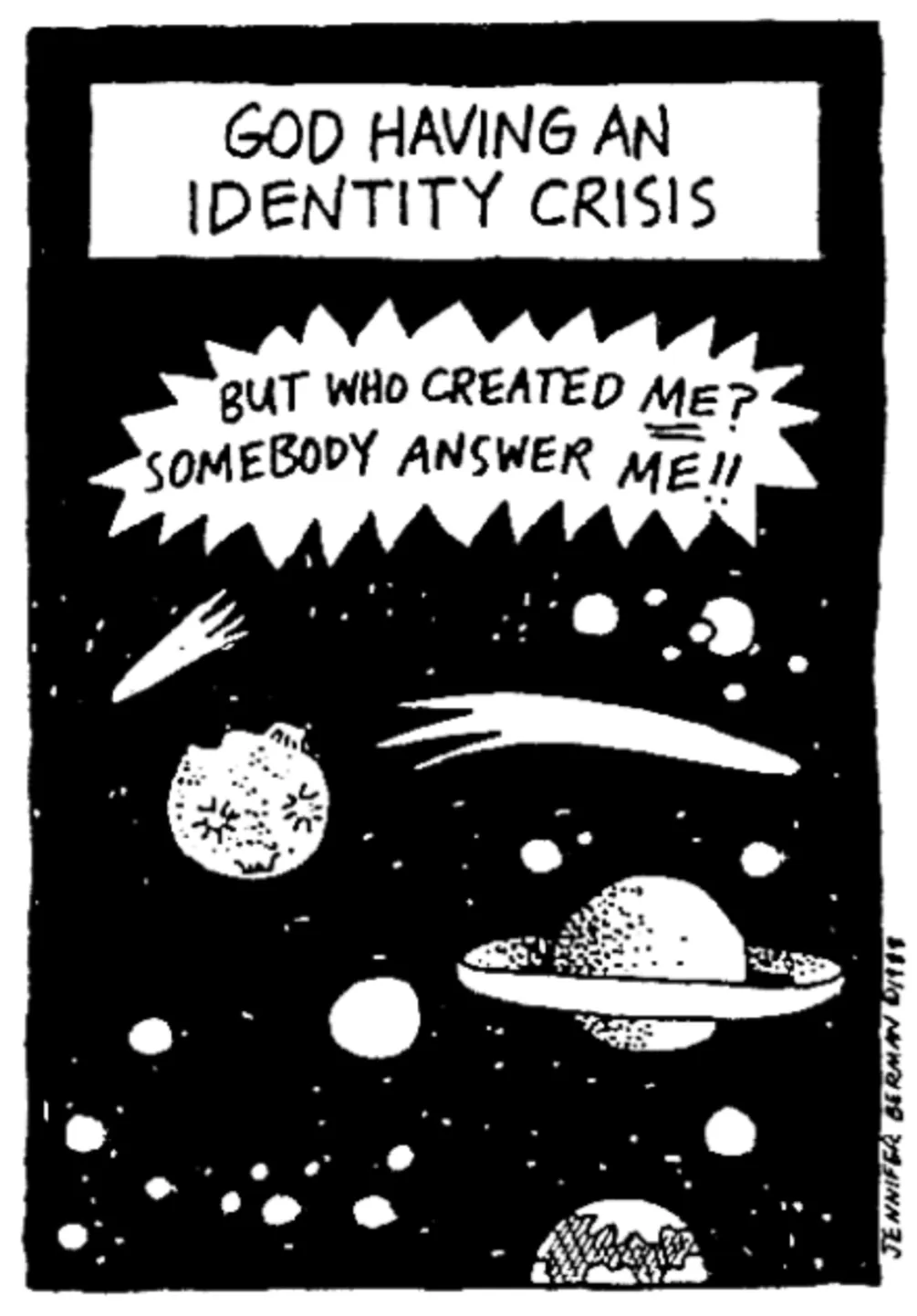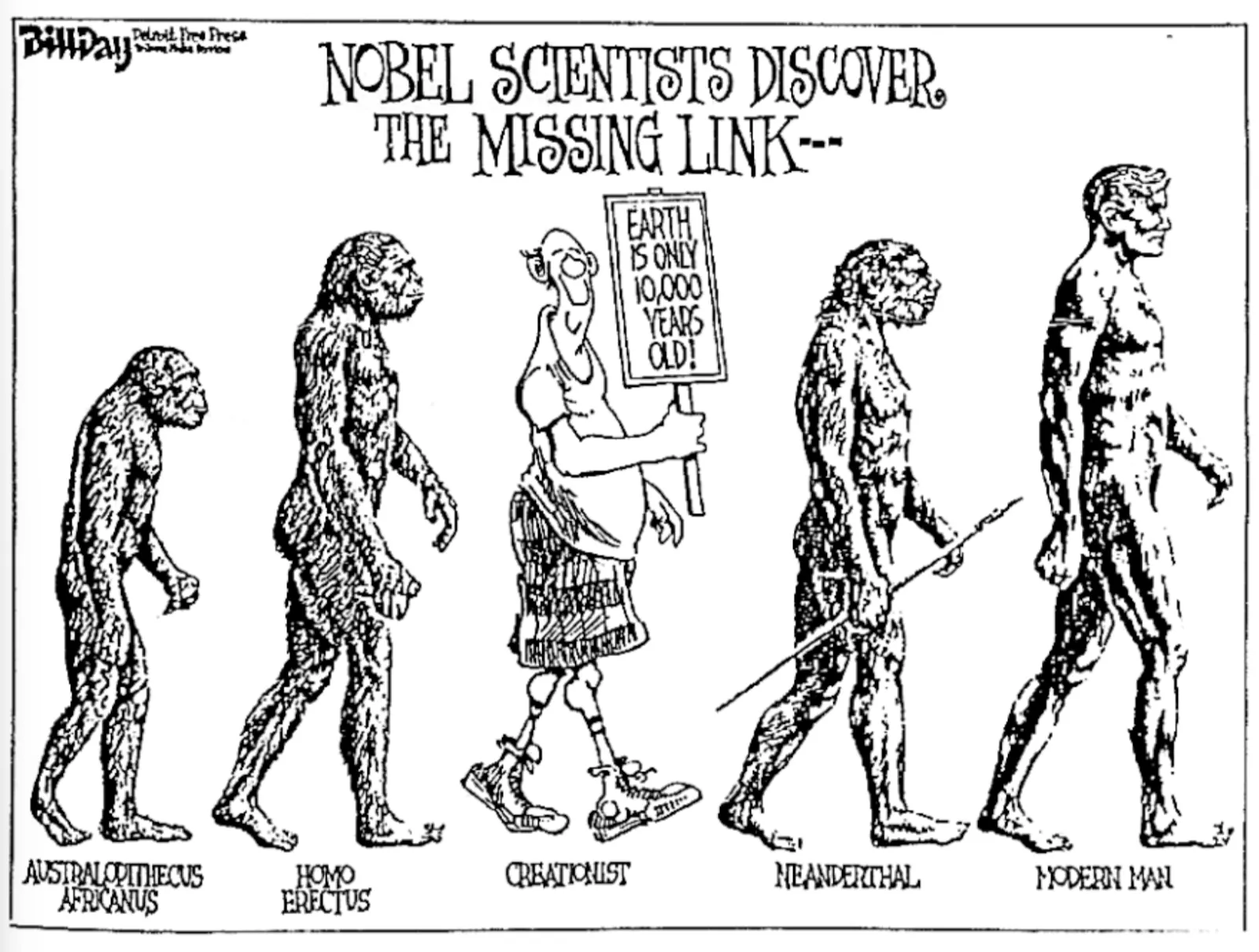Absurdities of Creationism
Ruth Walker - 1st February 1992
Fundamentalists suffer contortions in trying to make their assumptions fit Biblical accounts.
One of the many reasons why I object to the proliferation of fundamentalist Christian schools is that they are committed to teaching creationism instead of science.
There are two sorts of mistakes involved in the general arguments put forward by creationists to support their alternative model of the world’s origins.
The first are errors of scholarship. Good Biblical scholarship actually dates documents and objectively works out who wrote what. The fundamentalists, however, see the Bible as literally true, a historic record from the time of creation. There is a tendency to prove that one part of the Bible must be true because another part says it is — an approach hardly consistent with sound historical research.
Lack of Scholarship
Their scholarship contains a credal bias where they say X must have written this in order for it to be true; it is tre, so X must have written it. For example, did Moses write the five books of Moses? Most scholars point to the different documentary styles within the Pentateuch as suggesting they had different authors. According to Henry Morris, a leading creation scientist, it is not crucial that Bible-believing Christians accept that Moses wrote the five books attributed to him — all one has to accept is that he edited the five books.
Fine. In the fifth book (Deuteronomy 34:4) we find the account of Moses’ death. But that’s all right — Moses didn’t write the account of his own death, he only edited it!
There are many examples like this. Fundamentalists are constantly in the predicament of having to explain anomalies, contradictions and inconsistencies. It is a particularly unpleasant situation for them, as the moment they have to explain, they have to interpret and draw on information from outside the Bible. This fatally undermines their claim to take the Bible literally. Given the diverse and contradictory material in it, it is impossible to take all of it as literal truth. They must therefore be selective, and this is forbidden.
The second type of mistake is possibly a category mistake. The fundamentalists treat myth as science. According to them, Genesis 1 is the literal account of the world’s origins. In his Scientific Creationism (1974), Morris urges us to believe that the so-called first creation account was written by God himself, with his own finger. He has the grace to put finger in inverted commas, so he must be aware of the difficulties with literalising this.
The second account (Genesis 2:3 to 5:1) was written by Adam. The first account with the six-day story in it apparently could not have been written by Adam because he was not there to observe it.
Current Biblical scholarship accepts that the first account is the later version. The fundamentalist assumption that the books occur in the same order as they were written is false. So is the assumption that once they were written they were not tampered with. The Jewish Scriptures were revised, edited, blended and adapted for centuries according to need.

“Science” and Creation
Returning to Genesis 1, we find that the proper creationist account is that it took six literal days to create the world. Morris says that on the first day the physical elements of the cosmos were energised. However, in the Bible it merely says that God said “Let there be light.”
Similarly, for day two we have from Morris the formation of the atmosphere and hydrosphere. In the Bible it says that God created a dome to separate the waters from the waters. The dome was the sky. And so it goes on.
Morris has to interpret scripture in the light of modern scientific concepts. One of the reasons why he has to do this is because as far as the writer of Genesis 1 was concerned the earth was flat. He didn’t know about spheres — and certainly not about atmospheres, hydrospheres, lithospheres and biospheres. If we have to interpret the Genesis account in some way to make it scientific at all, why not interpret it in evolutionary terms?
The fundamentalists are not going to accept this. If creationism has difficulties —
and what mortal can fathom the mysteries of God — then so, they say, does theistic evolution. Morris provides a number of reasons why it is impossible to believe that evolution was God’s creative mechanism. However, caveat Christianus. Some of the arguments also show why creation is impossible as God’s creative mechanism.
For instance, evolution is said to be inconsistent with God’s omnipotence. God is capable of creating the universe in an instant, and didn’t have to stretch it out over aeons of time. Why then did he take six days? And why did he need to rest on the seventh?
A Mean God?
Evolution is also inconsistent with God’s omniscience and his love. I put these together because the same question applies to them both. If God created us literally in his own image then we know he has lower back problems. The human spine is not well designed for creatures who walk upright. Now, he created us with these before the Fall. It can’t be a punishment because at that time there was no sin. So either he is omniscient and mean, or he made a mistake and we don’t know if he loves us or not.
The creation account is inevitably flawed. It is not scientific, it never was intended to be and it is grossly distorted by those determined to enforce a literalist interpretation of the Bible where it is neither possible nor necessary.
It could be argued that science can still proceed. All that happens is that evidence is interpreted differently depending on whether you are working in the evolutionary framework or the creationist framework. The fundamentalists still do all the same things that secular scientists do.
There is one crucial difference though. When scientists find evidence that conflicts with their theories, the theories are modified to take account of it. This is, however, impossible in principle for the creationists. Science consists solely in discovering facts about God’s creation. When evidence conflicts with the Biblical account of that creation it is the evidence that has to be discredited, not the theory.
This creationism is, however, the foundation of a Christian schooling. The most tolerant a fundamentalist can be is to teach evolution alongside creationism. Since much of what is imputed by the fundamentalists to evolution is allegedly anti-Christian, this is unlikely to be a balanced treatment. Even to raise the absurdity that is creationism to an equal footing with real science education is to cause a serious distortion.
